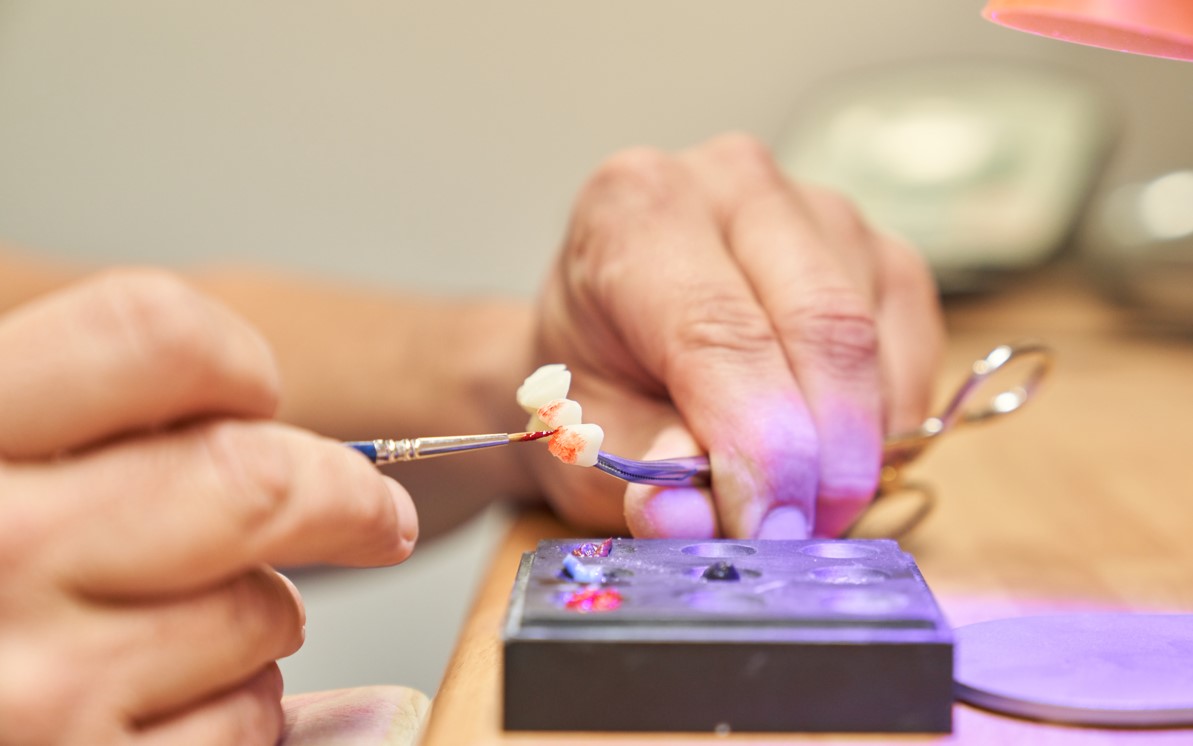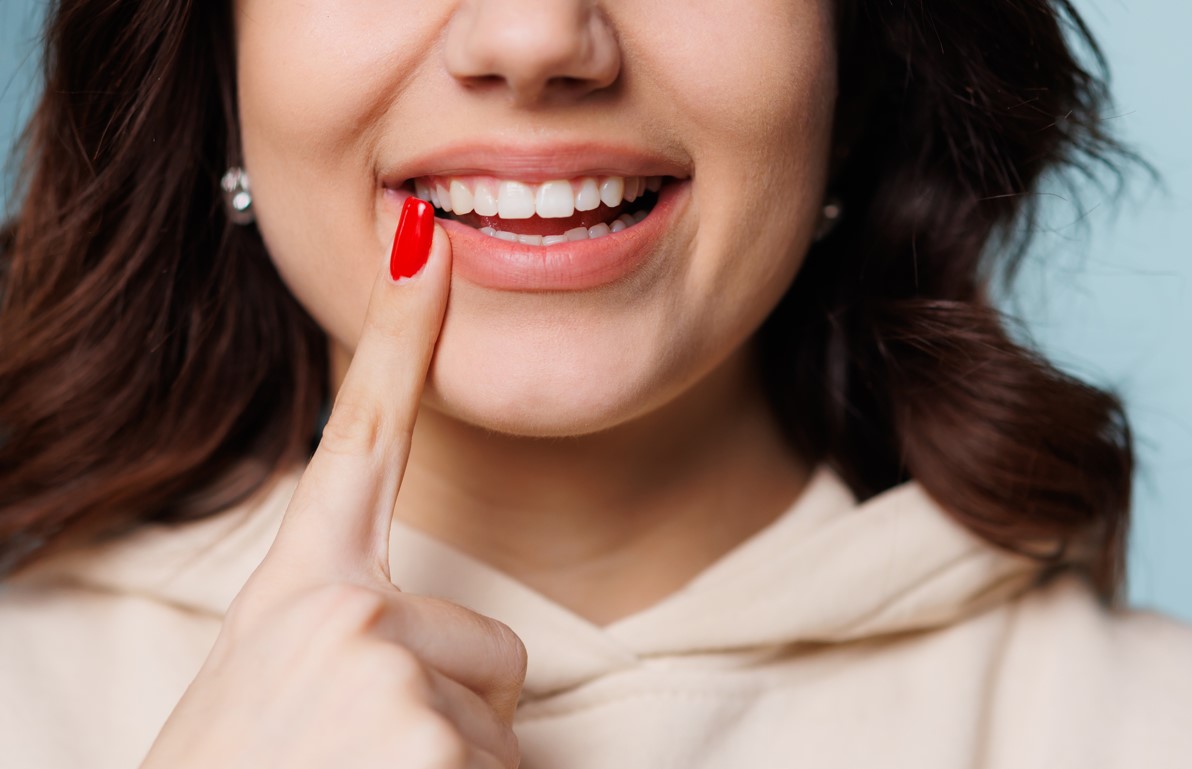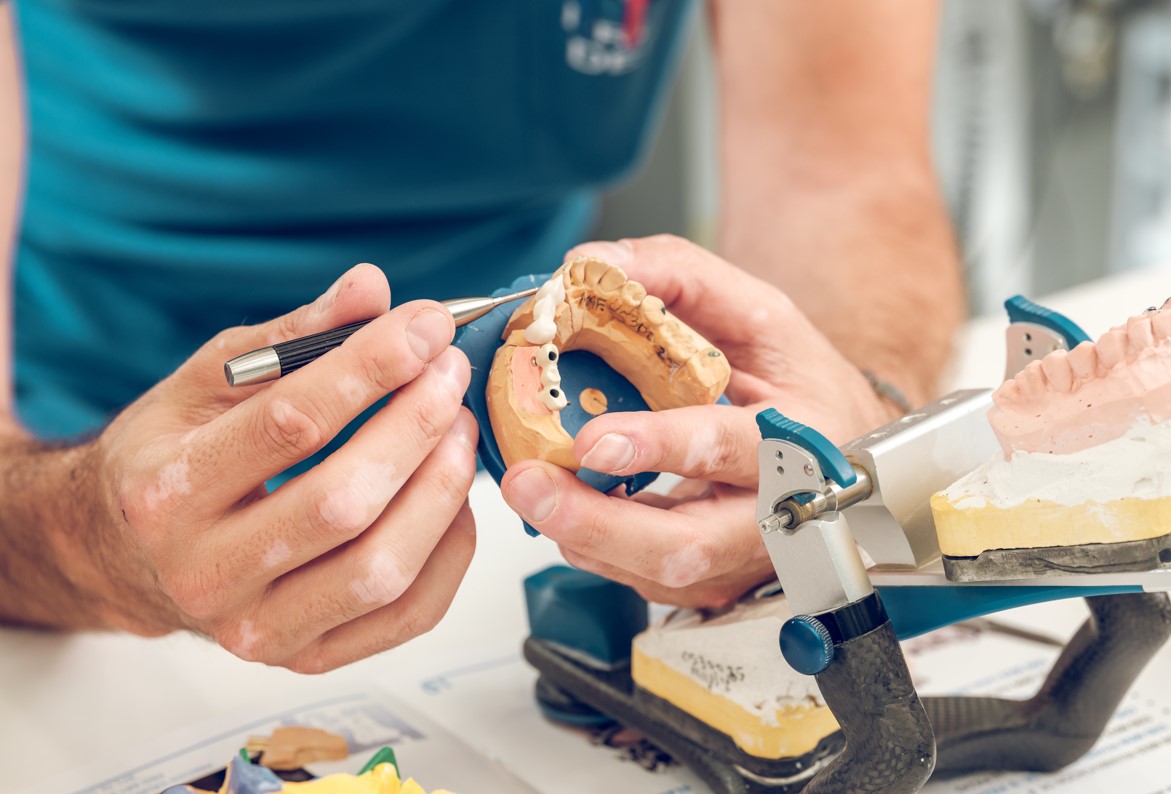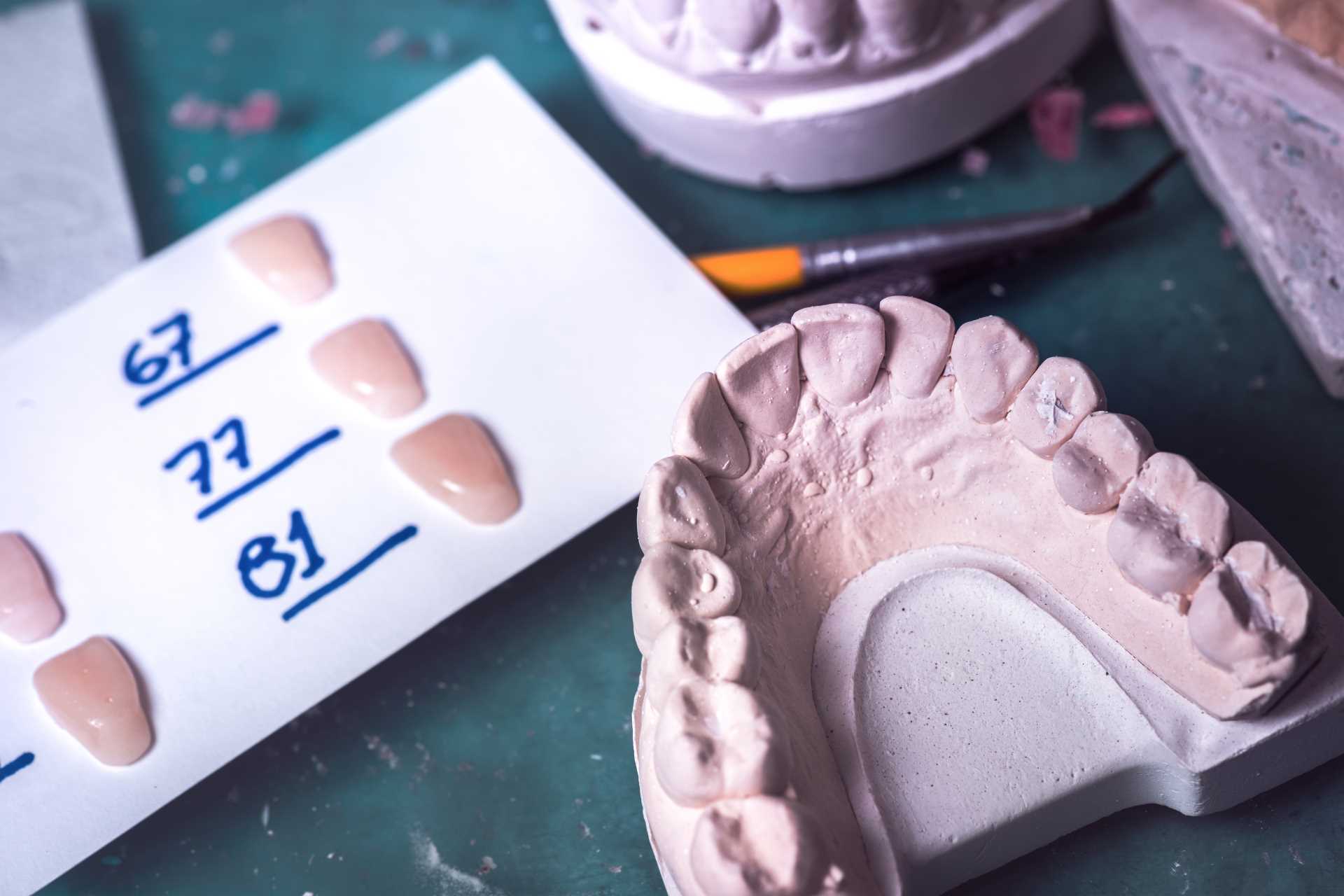Difference Between Dental Technician and Dental Prosthetist
If you’re thinking about getting dentures or own a pair already, you have heard the terms dental technician and dental prosthetist is thrown around quite a bit. Though the two professions have a lot of similarities, there are a few instances where a dental prosthetists skill might be more appropriate for a job and vice versa. We take a look at the difference between dental technician and dental prosthetist and some of the common dental appliances they work on.
Difference Between Dental Technician and Dental Prosthetist
What does a dental technician do?
A dental technician is someone who constructs and repairs dentures and dental appliances such as mouthguards, crowns and more. They tend to work in a laboratory, where they can specialise in partial and full dentures, crowns, bridges, orthodontic appliances, implants, or ceramics.
A Day in a Dental Technician’s Life
Wondering what does a dental technician typically do in a day? Duties a dental technician may perform include:
- Creating porcelain veneers and crowns.
- Creating plaster models of dentures.
- Building and polishing teeth on dentures.
- Maintaining laboratory records and preparing reports.
- Fabricating maxillo-facial prostheses.
What does a dental prosthetist do?
Dental prosthetists are originally trained as dental technicians but have completed more training so they can work as an independent contractor. Dental prosthetists typically provide diagnostic, preventive, and fabrication services to create and repair dentures and make mouthguards.
A Day in a Dental Prosthetist’s Life
Wondering what does a dental prosthetist do in a day? In addition to the above duties, a dental prosthetist may perform the following tasks:
- Assessment, treatment and provision of removable dentures and dental appliances.
- Managing a laboratory and dental technicians.
- Constructing and repairing partial or full dentures.
- Creating mouthguards from dental impressions.
Some common dental appliances a dental technician might create:
Dental crowns, bridges and implants
A dental technician works alongside a dentist to create a dental crown that perfectly suits a patient’s teeth. A dentist will make an impression using a putty like material that’s to be placed inside a patient’s mouth. They will then send the impression to a laboratory, where a dental technician will begin constructing a crown by mixing appropriate materials and shaping the crown to exact measurements. Using fine artistry, a dental technician will then paint the crown to match the patient’s tooth colour and size and shape of surrounding teeth. The process is similar for dental bridges and implants, with the latter involving an adding in a special titanium screw.
Full or partial dentures
Using a special tray, a dental prosthetist will make an impression of a patient’s mouth and conduct a bite check. At this stage, a dental prosthetist will discuss with you the size, shape, and colour of your new teeth, before sending that information to a laboratory. A dental technician will then create a plaster model from the impressions and place it in an articulator (a device that mimics the movement of a jaw). This makes it easier for a dental technician to attach teeth to the model and shape the gums. Once the acrylic has cured, a dental technician will clean and trim the gums and teeth before sending it to the dentist.
Orthodontics
Dental technicians that specialise in orthodontic appliances work alongside an orthodontist to create metal braces and retainers. The type of artistry needed for orthodontics is different from crowns and bridges, as close care needs to be taken to ensure the appliances fit precisely over a patient’s teeth.
Denture clinic Brisbane
We hope our article has given you an idea of the difference between dental technician and dental prosthetist. If you have any questions about dental appliances, get in touch with Denture Health Clinic today by calling us on 1300 304 092 or booking an appointment online.
Related Posts

Foods to Avoid with Dentures
Foods to Avoid with Dentures Dentures are a majorly beneficial and life changing solution for many people around the world, however, that doesn’t mean they don’t come with responsibility and the need for proper upkeep. It’s important to ensure you’re eating the correct foods and drinking the right drinks that keep your dentures intact and

Do Partial Dentures Look Natural?
Do Partial Dentures Look Natural? The simple answer is yes, partial dentures can look natural. But there are a few things you need to know in order to make sure that yours look their best. Partial dentures are specifically designed to match the shade and shape of your existing teeth, so they should blend in

Dentures and Saliva – What You Need to Know
Dentures and Saliva – What You Need to Know If you wear dentures, saliva problems may be an issue that you have to deal with on a daily basis. Dentures and saliva have a complex relationship. Saliva helps to keep your mouth moist and aids in the digestion of food as well. Without enough saliva,

Can You Get Same Day Dentures: An Informative Guide
Can You Get Same Day Dentures: An Informative Guide Same day dentures are generally referred to as immediate dentures and are often so used as a resolution and replacement for individuals who have had teeth removed. Although they are an immediate solution, they are only temporary to fill in the missing space in the gums.

How Are Dentures Made?
How Are Dentures Made? Have you ever wondered how are dentures made? As dental prosthetists, we get asked this question a lot, so we set out to answer the question of how are false teeth made and shed some light on the denture making process. How are Dentures Made to Perfectly Fit Each Individual Patient?

Famous People with False Teeth
Famous People with False Teeth We know that getting dentures can be a daunting new experience, and you may feel insecure about your new set of teeth. All of this will go away once you’re used to your pearly whites, and the uncomfortable sensation you’re feeling will subside. No matter your age, there’s no need
We do whatever it takes to bring you peace of mind
1300 304 092
Call us today
